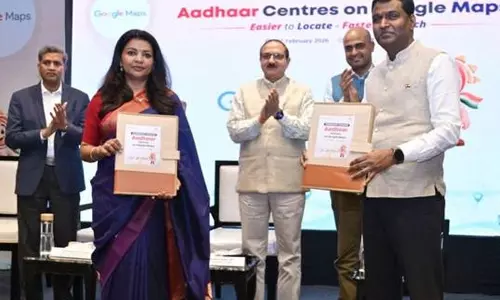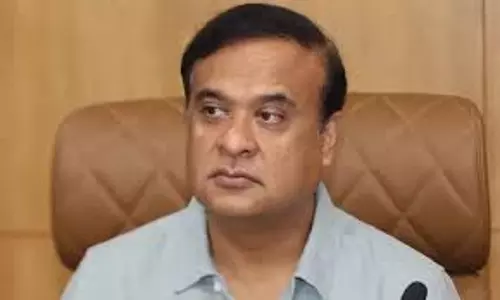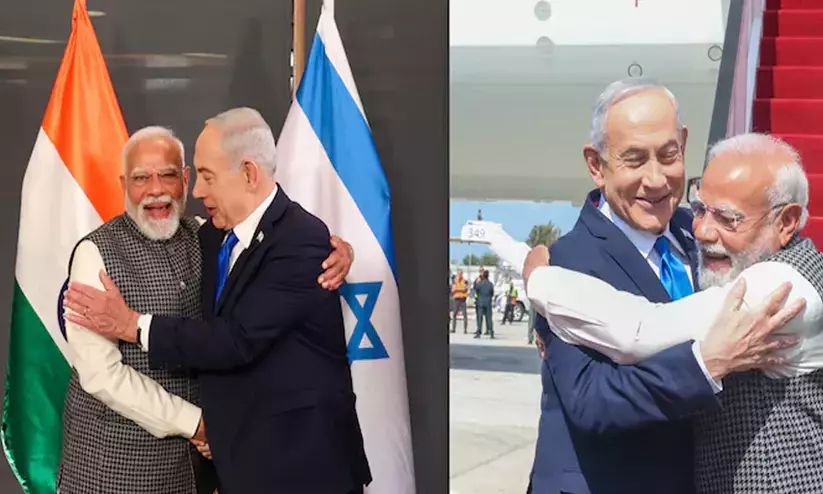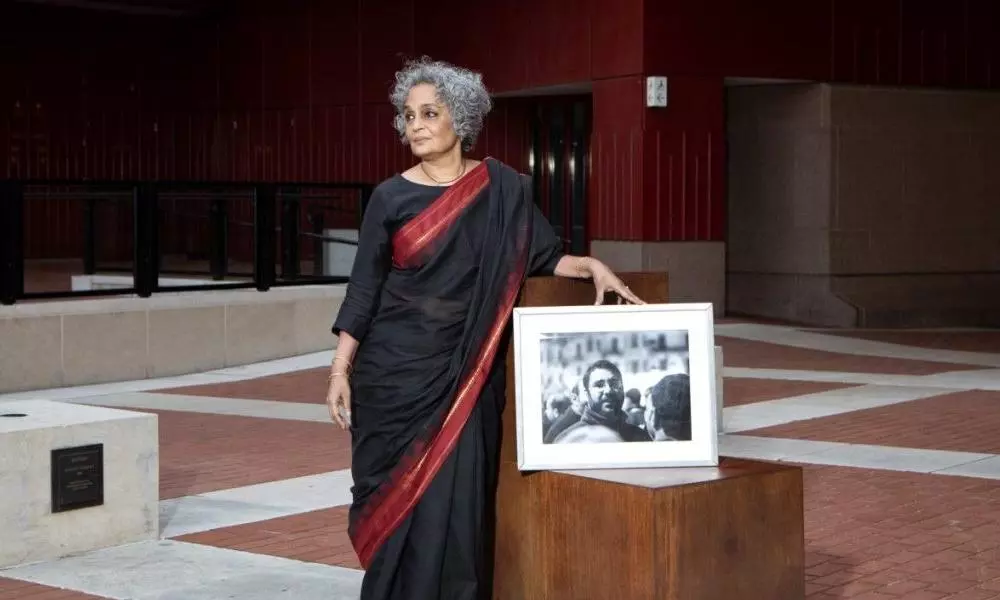
Neither money, propaganda, nor weapons can hide the wound that is Palestine: Arundhati Roy
text_fieldsArundhati Roy, celebrated author and activist, has announced that she will donate her share of the PEN Pinter Prize to the Palestinian Children’s Relief Fund. The declaration was made shortly after she was named for the award. Roy also named British-Egyptian writer and activist Alaa Abd el-Fattah as the ‘Writer of Courage’ she would share the award with, recognizing his bravery in the face of ongoing imprisonment in Egypt.
In a speech delivered at the British Library on October 10, 2024, Roy addressed the audience with gratitude while highlighting the significance of the prize and the role of writers in society. She began by acknowledging Alaa Abd el-Fattah’s absence from the event, stating, “You are here in this room with us. You are the most important person here.” Referring to his powerful words from prison, Roy highlighted the global attention his plight has drawn. She paid tribute to Abd el-Fattah’s writings and his enduring spirit, calling for greater awareness of his unjust imprisonment.
Roy’s speech quickly pivoted to address broader issues of injustice, focusing on the dire conditions of political prisoners around the world, particularly in India. She mentioned her “friends and comrades” incarcerated in India, including activists, journalists, and scholars such as Umar Khalid, Gulfisha Fatima, and Khurram Parvaiz. Her words conveyed deep empathy for those imprisoned, drawing connections between their struggles and her own stance against state repression.
Reflecting on the themes of the PEN Pinter Prize, Roy explained how she identified with Harold Pinter’s notion of “unflinching” courage, although she confessed to often feeling as though she was “permanently flinching.”
She shared an anecdote from Pinter’s past to illustrate the complexities of moral courage. Pinter, while advocating for Nicaragua in the 1980s, encountered a chilling moment where a US diplomat acknowledged the inevitable suffering of innocent people during wartime without showing any sign of remorse. This recollection, Roy said, underscored the ways in which powerful governments justify atrocities with a detached acceptance of violence.
In the latter part of her speech, Roy delivered a searing indictment of Israel’s military actions in Gaza and Lebanon, accusing Israel and its allies of carrying out genocide. She criticised the US government’s support for Israel, pointing out that since October 7, 2023, Israel had killed tens of thousands of people in Gaza and displaced the majority of its population. Roy stressed that these acts were not simply self-defence but amounted to a calculated war of aggression aimed at solidifying Israel’s occupation of Palestinian territory and maintaining its apartheid system.
Roy drew stark parallels between Israel’s actions and historical examples of ethnic cleansing and genocide, noting how Israel’s leaders have dehumanized Palestinians. Citing statements from figures like Menachem Begin and Yitzhak Rabin, Roy highlighted the rhetoric used to justify violence against Palestinians. She condemned the silence and complicity of global powers, particularly the US, which she accused of providing unflinching support for Israel’s crimes.
In one of the most striking portions of her speech, Roy spoke of the Israeli soldiers’ increasing desensitization to violence, sharing disturbing examples of how they had flaunted their cruelty on social media. She asked the audience, “What can possibly justify what Israel is doing?” and critiqued the Western media’s portrayal of the Hamas attack on Israel in October 2023 as the starting point of the conflict. Roy refused to play into the narrative of moral equivalence, stating firmly, “I do not tell oppressed people how to resist their oppression or who their allies should be.”
Roy also addressed the larger geopolitical context of the conflict, pointing out the US’s financial and military support for Israel. She condemned Western democracies for their moral hypocrisy, noting that public opinion in these countries increasingly diverges from their government’s support for Israel. Polls have shown that many citizens in the West do not agree with the policies enabling Israel’s actions, and Roy highlighted the growing dissent, including among young Jews, against Israel’s treatment of Palestinians.
Roy warned against the erasure of Palestine, both physically and symbolically. She referenced Israeli Prime Minister Benjamin Netanyahu’s public display of a map that erased Palestine entirely and criticized the international community’s acceptance of such actions. Her message resonated as a call for justice, urging the world to not turn a blind eye to the suffering of the Palestinian people.
Arundhati Roy observed that as the violence in Gaza and Lebanon escalates into a regional conflict, the real heroes remain unseen. However, they continue to fight, believing that one day, from the river to the sea, Palestine will be free. She emphasized that true liberation is not measured by the timelines set by generals but by the enduring struggle for justice by the people. Victory resides in their unwavering commitment to a dream too vast for prisons, palaces, or even the squares where revolutions are born, she said.























